President Zuzana Čaputová appointed the new cabinet of PM Eduard Heger on April 1.
Most of the ministers remain the same as in the Igor Matovič cabinet that governed the country during the first year of the current election term. The main change is the swap between Heger, who will now serve as the prime minister, and Matovič, who will be his finance minister.
The newcomers to the cabinet will be the health minister and the labour minister. The latter has not been nominated yet.
Prime Minister - Eduard Heger (OĽaNO)
Eduard Heger worked in various companies after he finished his studies in economics. He also served as a consultant at the Defence Ministry, participating in the reform of the armed forces.
Heger is a conservative politician and head of the pastoral team in the community of the Dome of St. Martin in Bratislava.
As finance minister, he was responsible for the state budget and his agenda also included banking, insurance, and pensions. He controlled financial administration, tax and toll collection too.
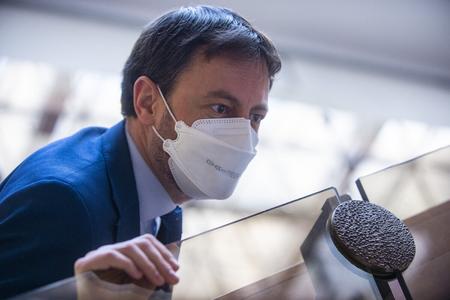
Finance Minister - Igor Matovič (OĽaNO)
Matovič conditioned his resignation as PM with a swap of posts with Eduard Heger. He will make decisions about public finances and measures to save the pandemic-hit economy. He will also deal with the recovery plan, to be financed from the Next Generation EU fund, and the planned tax reform that should also bring about changes in property tax.
Submitting the recovery plan to the European Commission is the most important task in front of the Finance Ministry at the moment. The plan could bring Slovakia about 6 billion euros. The final deadline is April 30, 2021.
Defence Minister - Jaroslav Naď (OĽaNO)
In 2004-2013, he served at the Defence Ministry in various positions, including the general director of the defence policy, international relations and legislation sections.
In 2012-2013, he served as head of the defence section at Slovakia's permanent delegation to NATO and representation to the EU.
Apart from managing the armed forces, the Defence Ministry also oversees the protection of Slovakia's air space, defence planning and military intelligence.
Interior Minister - Roman Mikulec (OĽaNO)
Mikulec used to work in the military airforce. Later, during Iveta Radičová’s government (2010-2012) he was head of the Military Intelligence Service.
In May 2013, the Sme daily received a vast report about embezzlement at the Military Intelligence Service (VSS) under the first government of Robert Fico. The report about alleged fraudulent financial reports was authored by Mikulec and his deputy, the deceased Vladimír Suchodolinský.
In June 2013, after Mikulec’s term in office expired, police searched his car and found confidential documents about the work of VSS in it. Mikulec claims that the micro SD card was put into his car as revenge for revealing suspicions of financial fraud. The case reached the court and Mikulec was exempt in June 2018 by the District Court Bratislava III. The verdict was also confirmed by the appellate Regional Court in Bratislava in September 2019.
Health Minister - Vladimír Lengvarský (OĽaNO nominee)
For many years, Brigadier General Vladimír Lengvarský was the highest-ranking physician in the army. When Defense Minister Jaroslav Naď (OĽaNO) found out last year about the overpriced purchases at the Central Military Hospital in Ružomberok, he dismissed its director and appointed Lengvarský to head the hospital.
Less than a year later, the Ružomberok military hospital became the best-rated teaching hospital in the survey among patients of the Dôvera insurance company, the Sme daily reported.
When Naď introduced Lengvarský at the end of August last year as the new director of the military hospital in Ružomberok, he said Lengvarský had also demonstrated his managerial skills in the fight against the Covid pandemic.
Agriculture Minister - Ján Mičovský (OĽaNO)
Ján Mičovský graduated from the Faculty of Forestry at what is today the Technical University in Zvolen in 1990 and in Brno in 1990.
He is a forester and environmentalist who founded the Slovak Environmentalist Society. He was awarded the White Crow in 2010 when as an employee of the State Forest, he pointed out the suspicious financial management of the company.
The award is granted to people who have shown courage and underwent the risk of being fired by their employer.
Environment Minister - Ján Budaj (OĽaNO)
Ján Budaj became known to the public as one of the leaders of the 1989 Velvet Revolution. He has since taken part in ecological activist groups.
As OĽaNO MP he was engaged in the efforts to scrap the Mečiar amnesties, which the parliament did in 2017.
He was expected to become deputy speaker of the parliament in the new government or the Culture Minister.
Since 2016, he had been an opposition MP of OĽaNO. Before the communist regime fell, he participated in the environmentalist movement.
Culture Minister - Natália Milanová (OĽaNO)
Natália Milanova graduated as a teacher of Slovak language and history. She had been teaching for several years before she started working for OĽaNO in 2014. Milanová entered parliament in 2018 after Jozef Viskupič and Erika Jurinová were elected the governors of Trnava and Žilina respectively and gave up their MP mandates.
She became vice-chairwoman of the parliamentary committee for culture and media. She was in charge of the parliamentary audit of the Audio-visual Fund and Fund for Support of Art.
She also leads the breast-feeding support initiative in parliament.
Milanová criticised present Culture Minister Ľubica Laššáková for cancelling grants for LGBTI projects and for appointing Vladimír Antal as director of the Slovak National Theatre in 2018, even though she promised there would be a call for the position of managing director.
Transport Minister - Andrej Doležal (Sme Rodina)
Doležal is a former manager at the public service broadcaster RTVS and private televisions Markíza and TV JOJ. From 2008 to 2012, he was head of the technology department in Markíza, later moving to RTVS, where he worked for five years as the director of the technological department.
He graduated from the Faculty of Electrical Engineering and Information Technology at the Slovak University of Technology.
He has most recently worked as the director for innovations in the company Towercom. The company provides radio and television signals for households.
Labour Minister - To be announced
The Sme Rodina party originally proposed Jozef Hlinka, who served as an MP during the first year of the current term, as a replacement for Milan Krajniak, who served as labour minister in the Matovič cabinet but resigned and returned to parliament.
Yet, the situation changed on March 31, with the president's spokesperson Martin Strižinec announcing that the party will reconsider the nomination.
Deputy PM for Legislation and Strategic Planning - Štefan Holý (Sme Rodina)
Holý is a businessman, former lawyer and shadow finance minister of the Sme Rodina movement. He prepared for Sme Rodina the economic programme and was criticised by Richard Sulík (SaS) for his ideas about the construction of flats. His ministry will deal with the post office, telecommunications, informatisation, construction and tourism along with various means of transport.
Holý has close relations with businessman Vladimír Poór, who is allegedly a sponsor of Smer. They met in the company TrigoTech, where Poór was co-partner, and company Poltár Crystal & Steel, which is still managed by Poór. Poltár glassworks gained a state subsidy of €12 million in 2014.
Holý also purchased a share in company Noesis Strategies from Marek Hanúsek, who works with Poór in the company Framont.
Economy Minister - Richard Sulík (SaS)
Richard Sulík is a Slovak economist, politician, and former MEP.
He founded the rightist-liberal Freedom and Solidarity (SaS) party. In 2010-2011, he served as deputy parliamentary speaker under the Iveta Radicova government.
In October 2011 SaS refused to support Slovakia's participation in the European bailout mechanism. SaS MPs did not change their opinion even after the prime minister joined the vote on the bailout mechanism with the confidence vote. The government subsequently fell.
While in government, Sulík met with mobster Marian Kocner. They discussed the possible replacement of PM Radicova with then finance minister Ivan Miklos. They also discussed the general prosecutor election. Sulík has repeatedly apologised for these meetings.
As economy minister, Sulík will control most industries and energy-related business including nuclear energy, heat production, the gas industry, mining and support of SMEs.
Education Minister - Branislav Gröhling (SaS)
Branislav Gröhling holds a law degree from the private Bratislava University of Law, now known as the Paneuropean University in Bratislava.
In the past, Gröhling founded a network of hairdressers, Pierot. He is the SaS team leader for education and served as the party's MP during the last term.
The Education Ministry oversees schools, as well as science, research and development, youth, and sports. State school inspections also fall under its jurisdiction.
The ministry distributes grants to schools, sports associations, and companies for educational, science and technology projects.
Foreign Affairs Minister - Ivan Korčok (SaS nominee)
SaS originally intended to forward member Martin Klus for this post, but in the end, Sulik opted for career diplomat Ivan Korčok.
Korčok is a diplomat who has served at several embassies. He most recently served as Slovakia's ambassador to the US.
Korčok is known as an advocate of the unambiguous pro-western orientation of Slovakia and EU and NATO membership.
Justice Minister - Mária Kolíková (Za Ľudí)
After graduating in law, Kolíková worked as an attorney and also as the director of the Centre of Legal Help.
In 2010, she became a state secretary at the Justice Ministry. In May and June 2012, she served as an external advisor to the Czech Justice Ministry for judiciary reforms. In 2019, she joined the emerging party of the former president Andrej Kiska.
She says she wants to bring back trust in the judiciary and that is why one of her priorities is the founding of a specialised court that would deal with the disciplinary proceedings against people from legal professions, including judges.
The Justice Ministry oversees the functioning of courts, registers, notary chambers and forensic experts. The justice minister has the power to propose the suspension of judges.
Minister for Investment and Regional Development - Veronika Remišová (Za Ľudí)
Za Ľudí Chair Veronika Remišová graduated from the University of Performing Arts. She also holds a degree from Sorbonne in Paris and the Collège d'Études Interdisciplinaires in Brussels. She then went on to work for the European Commission, dealing with the programme for youth and education.
In the 2016 election, she ran as the leader of the OĽaNO slate. In 2019, she joined the Za Ľudí party. She is mainly known for her anti-corruption and investigative activities, which she started as a blogger.
Speaker of Parliament - Boris Kollár (Sme Rodina)
Boris Kollár is a Slovak entrepreneur and politician who leads the Sme Rodina (We are Family) movement. Before he entered politics, he was mainly active in operating ski centres. He has owned the popular Fun Radio station since 1999.
Kollár became an MP in 2016.
He was friends with an underworld boss as a child, and as adults, they ran a business together. He has also faced other suspicions of contact with the Bratislava underworld.
His coalition partners have criticised him for his membership in the Europe of Nations and Freedom group in the European Parliament. The group gathers anti-refugee parties in the EU.
As the parliament's speaker, Kollár will hold the second top constitutional post in the country after the president. His main task is to preside over parliamentary sessions. In the event Slovakia does not have a duly elected president or the president is unable to execute his or her post for health reasons, some presidential powers are transferred to the parliamentary speaker, like the power to appoint and dismiss cabinet members.


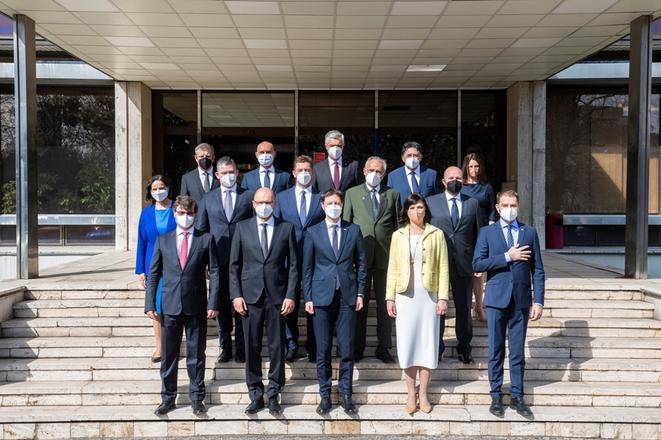 The Eduard Heger cabinet (source: TASR)
The Eduard Heger cabinet (source: TASR)
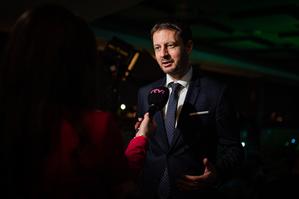 Eduard Heger (source: Sme)
Eduard Heger (source: Sme)
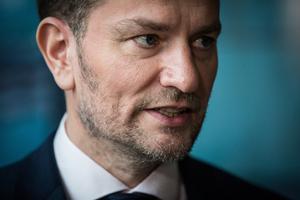 Igor Matovič (source: Sme)
Igor Matovič (source: Sme)
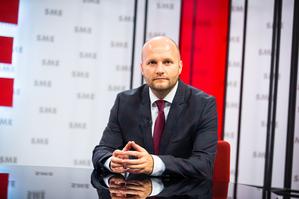 Jaroslav Naď (source: Sme)
Jaroslav Naď (source: Sme)
 Roman Mikulec (source: Sme)
Roman Mikulec (source: Sme)
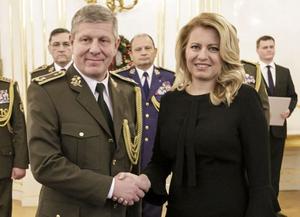 Vladimír Lengvarský and President Zuzana Čaputová (source: TASR)
Vladimír Lengvarský and President Zuzana Čaputová (source: TASR)
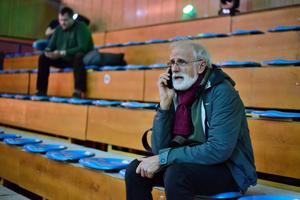 Ján Mičovský (source: SITA)
Ján Mičovský (source: SITA)
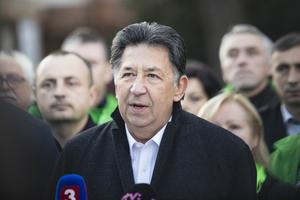 Ján Budaj (source: SITA)
Ján Budaj (source: SITA)
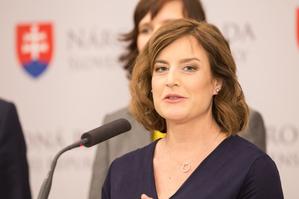 Natália Milanová (source: SITA)
Natália Milanová (source: SITA)
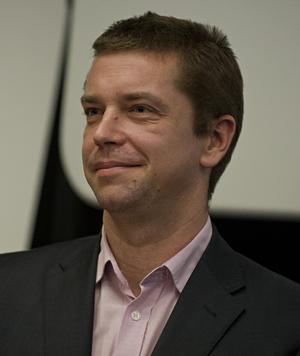 Andrej Doležal (source: TASR)
Andrej Doležal (source: TASR)
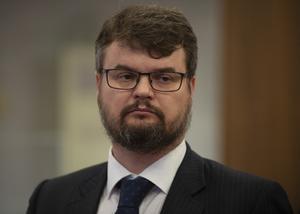 Štefan Holý (source: TASR)
Štefan Holý (source: TASR)
 SaS chair Richard Sulík (source: SITA)
SaS chair Richard Sulík (source: SITA)
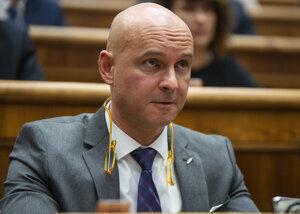 Branislav Grohling. (source: Sme)
Branislav Grohling. (source: Sme)
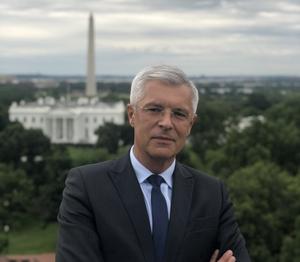 Ivan Korčok (source: Courtesy of I.K.)
Ivan Korčok (source: Courtesy of I.K.)
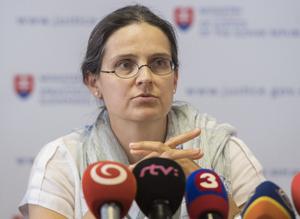 Mária Kolíková (source: TASR)
Mária Kolíková (source: TASR)
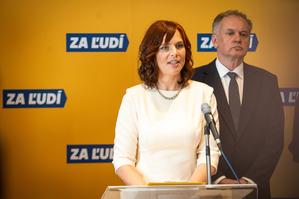 Veronika Remišová. (source: SME)
Veronika Remišová. (source: SME)
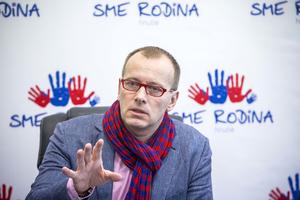 Boris Kollár (source: SME)
Boris Kollár (source: SME)